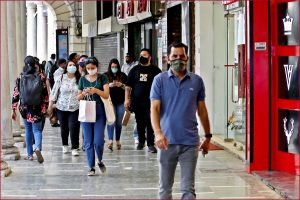
New Delhi: According to follow-up research published in the medical journal The Lancet two years after being infected with COVID-19, half of those hospitalised with the infection exhibit at least one symptom.
Evidence reveals that a significant proportion of persons who have recovered from COVID-19 have long-term impacts on several organs and systems, according to a study published in The Lancet Respiratory Medicine.
“Regardless of initial disease severity, COVID-19 survivors experienced longitudinal gains in physical and mental health, with most returning to their old work within 2 years; nonetheless, the burden of symptomatic sequelae remained very high,” according to the Lancet’s study summary.
NEW—Two years after infection, half of people hospitalised with #COVID19 have at least one symptom, follow-up study suggests. Read in @LancetRespirMed: https://t.co/AP1sdkAcCG pic.twitter.com/X2TNYuJtix
— The Lancet (@TheLancet) May 11, 2022
“At two years, COVID-19 survivors had a significantly worse health status than the overall population. The findings suggest that further research into the pathophysiology of long COVID is required, as well as the development of effective therapies to lower the risk of long COVID “it stated.
Long Covid can last for up to two years after an acute infection, implying that ongoing longitudinal follow-up is critical to better characterise the natural history of long Covid and determine when Covid survivors will fully recover.

The Lancet concluded, “Future research should better study the pathophysiology of long COVID and identify effective intervention measures to lower the risk of long COVID.”
Given the large number of people who have recovered from COVID-19 to date, the medical journal stated that the long-term effects of acute COVID-19 are clearly a major health problem that could result in a significant medical and socioeconomic burden.
“Without appropriate therapies, extended Covid could become a highly widespread new long-term illness,” said University of Leicester study co-leader Christopher Brightling.




